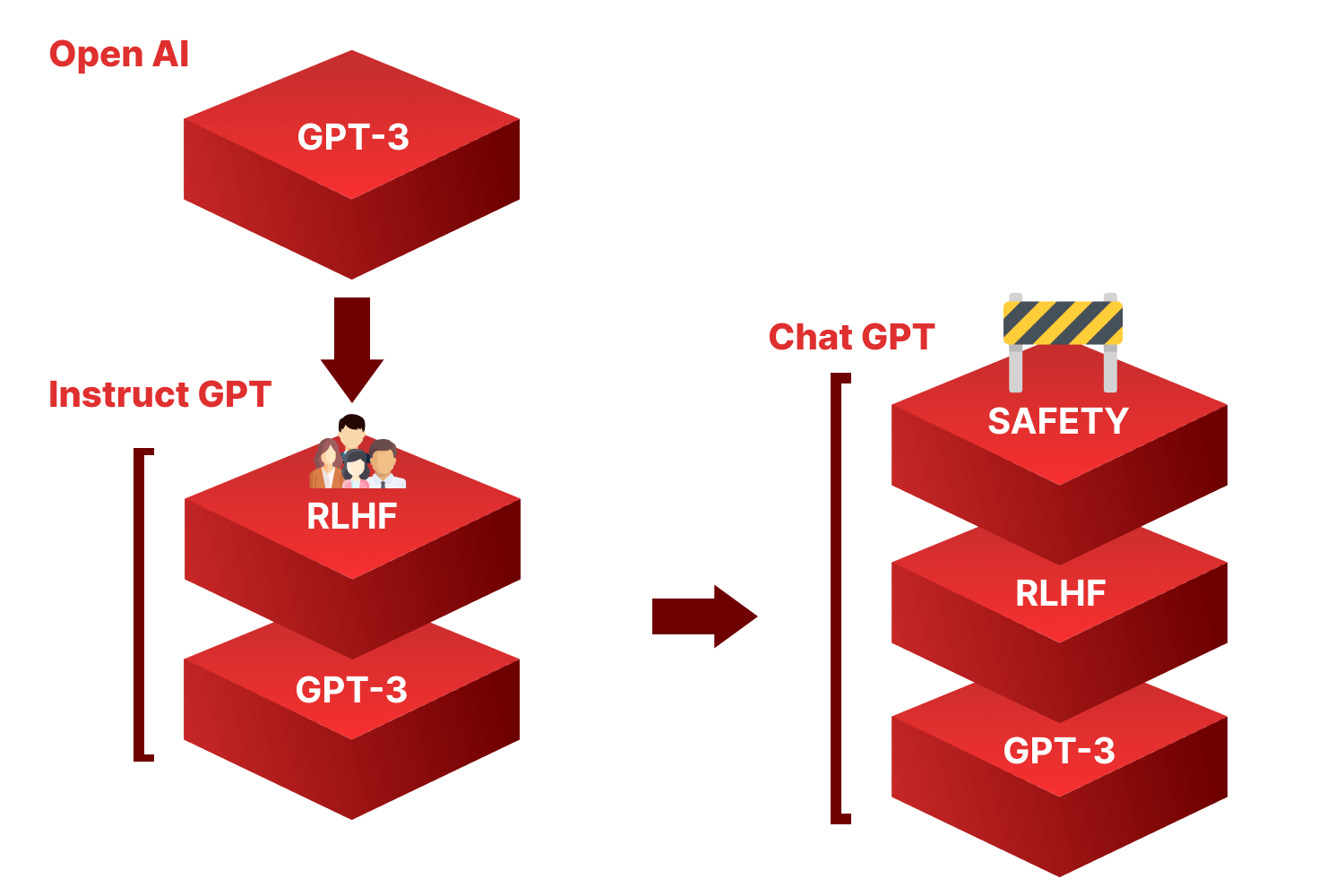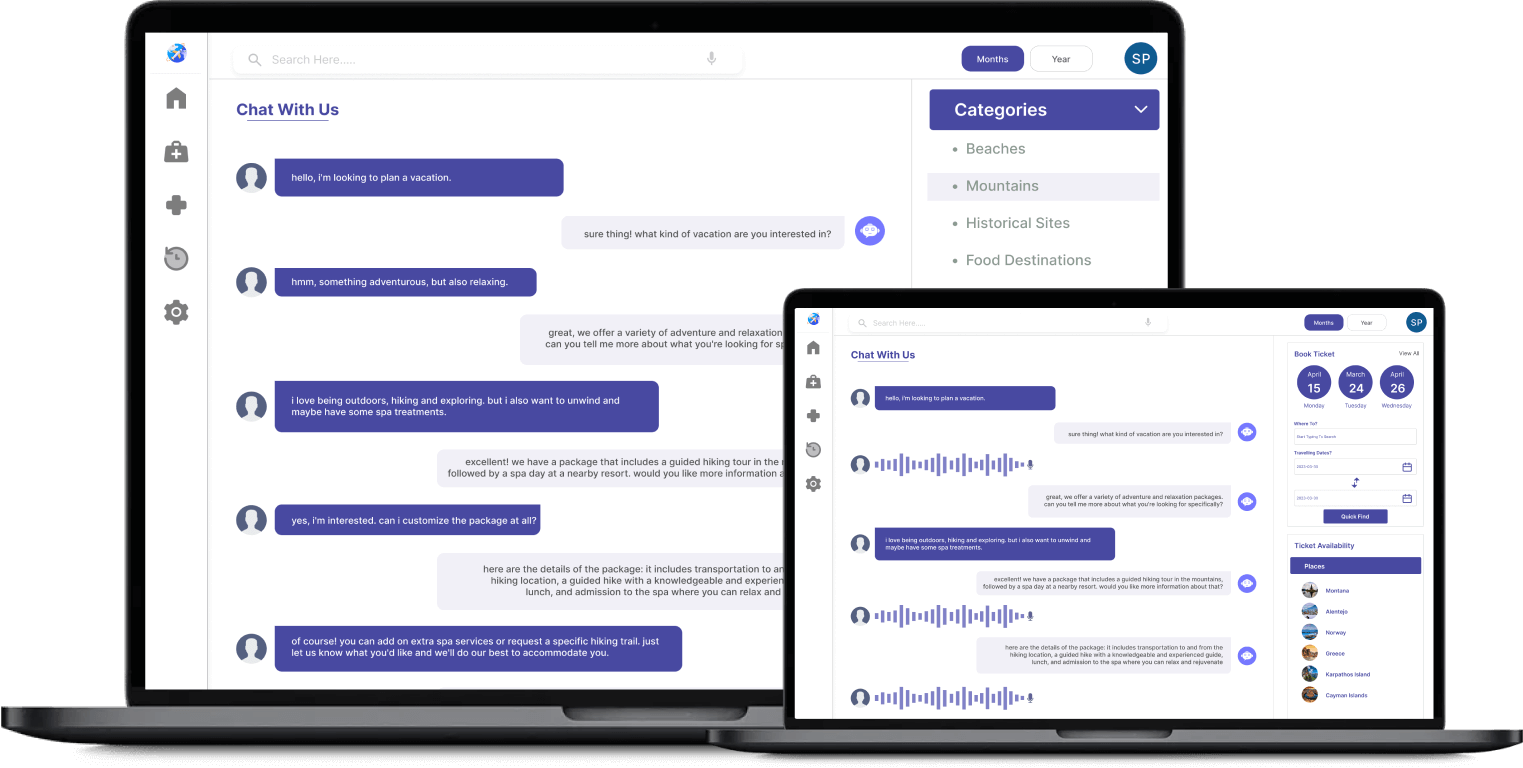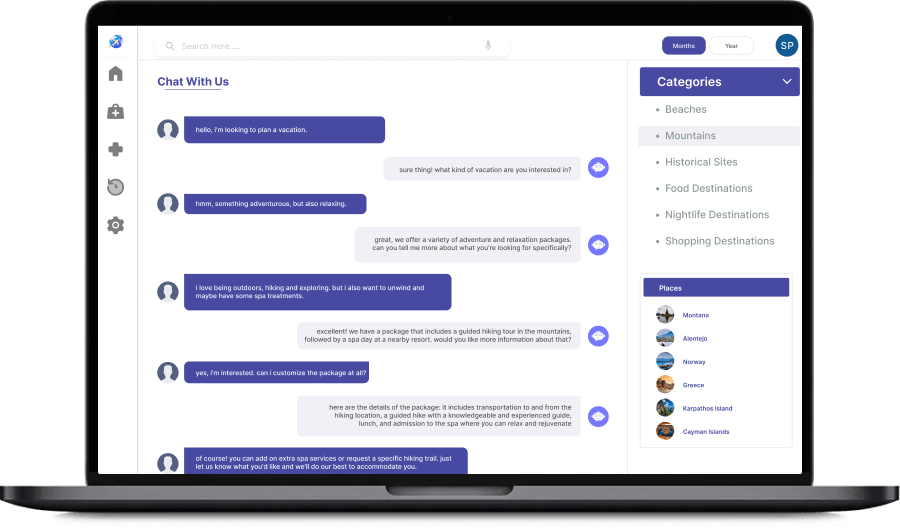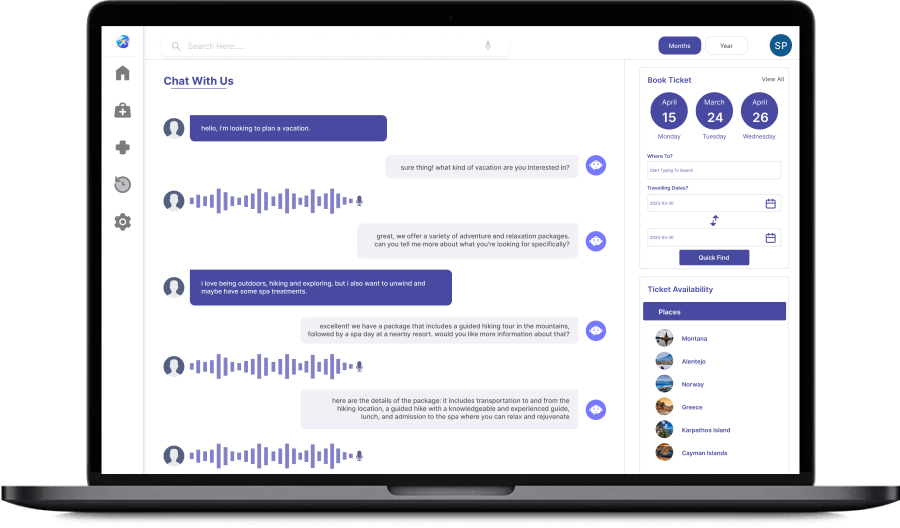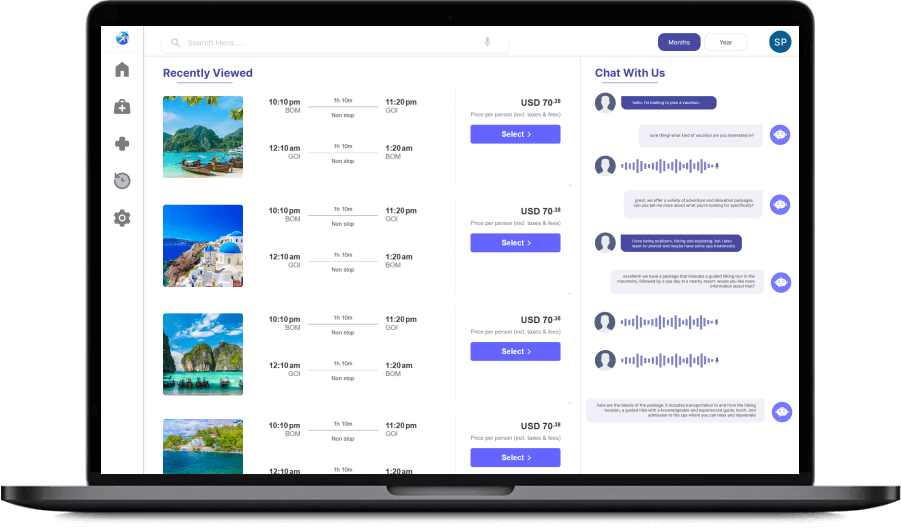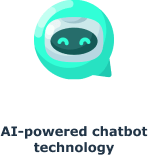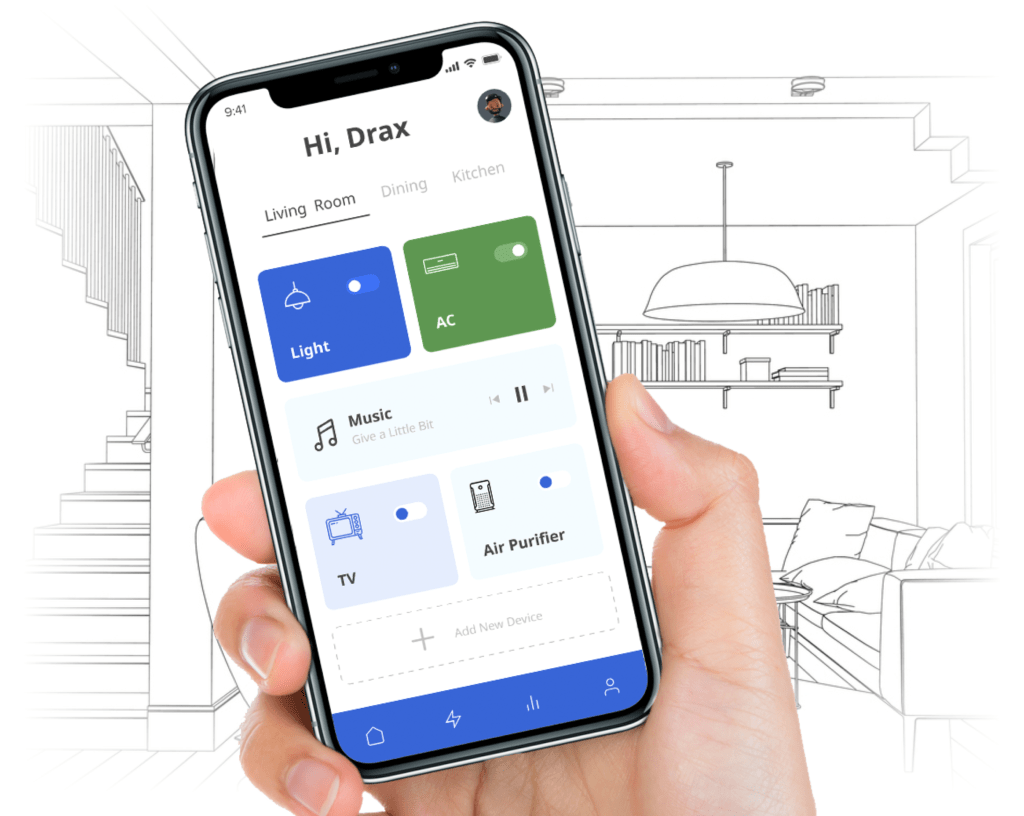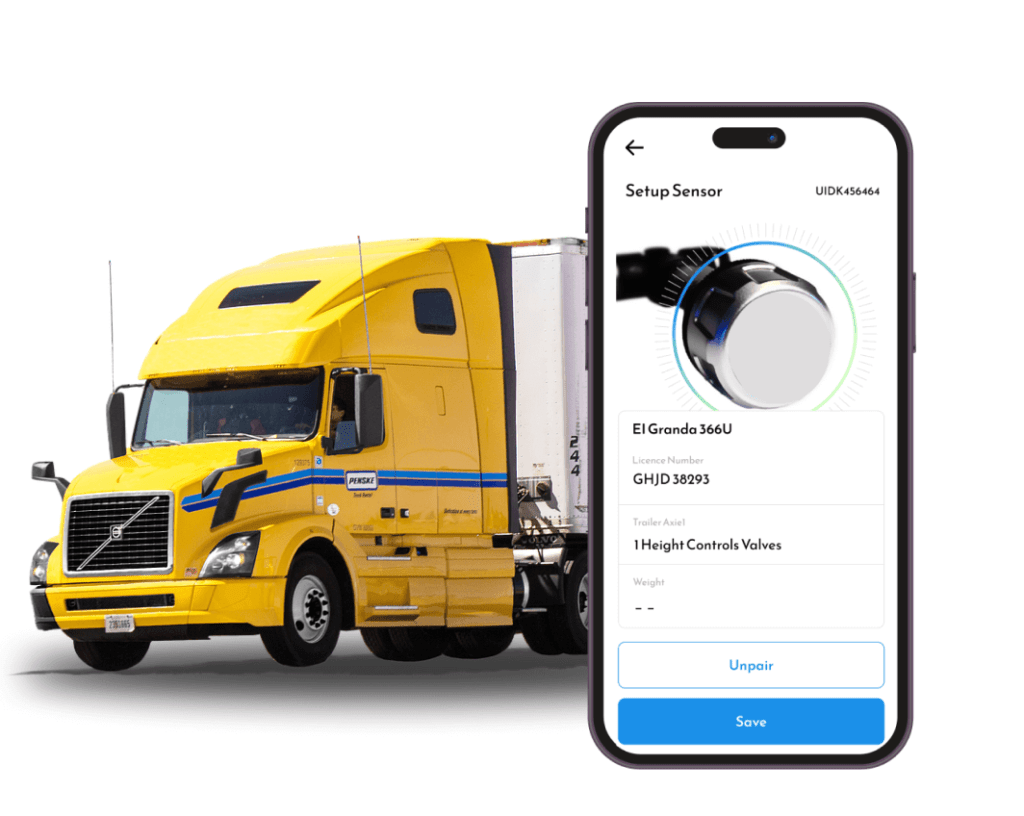Business Overview
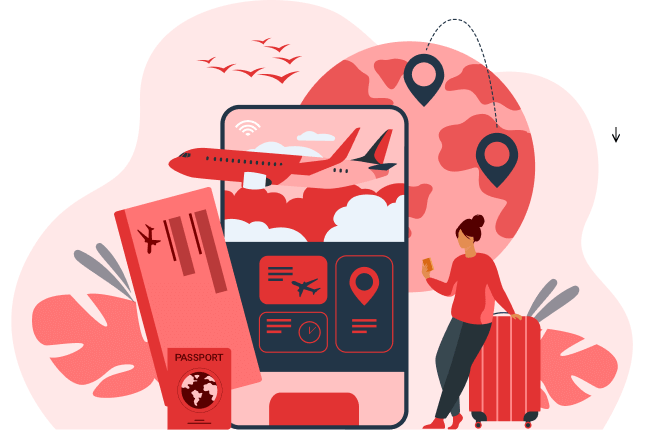
- The travel company operates globally and offers its customers a range of travel packages and services.
- The company faced challenges with high volumes of customer queries and support requests, which impacted their response time and overall customer satisfaction.
- The company’s manual support system was also limiting its ability to provide personalized recommendations and travel options based on customer preferences.
The Challenges
- The company needed to improve its customer support process to handle high volumes of customer queries and support requests.
- Our client wanted to provide personalized travel recommendations to its customers based on their preferences, but their existing support system did not allow this customization level.
- They wanted to streamline their booking process and improve the overall customer experience.
- The company was also looking to differentiate itself from competitors and provide a unique value proposition to its customers.
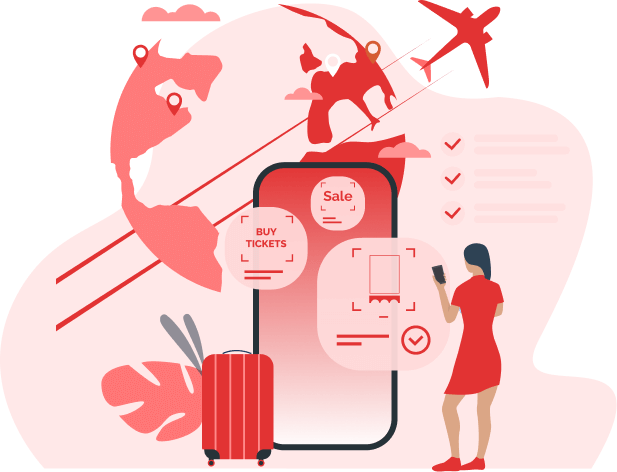
Solutions
-

Chatbot Integration with ChatGPT
To integrate the AI-powered chatbot with ChatGPT, we first analyzed the company's customer support system and identified areas where the chatbot could be most effective. They then developed a custom chatbot solution that leverages ChatGPT's natural language processing (NLP) capabilities to provide accurate and efficient responses to customer queries. Our team also used an API-based approach to integrate ChatGPT with the chatbot, allowing it to seamlessly interact with the company's customer support system.
-

Preference Storage
The chatbot was designed to collect and store customer preferences and provide personalized travel recommendations based on those preferences. The preference storage system was built using a combination of technologies, including a database for storing customer preferences, APIs for integrating with the chatbot and customer support system, and a user interface for customers to view and manage their preferences. SoluLab ensured that the preference storage system was fully secure, with data encryption and other security measures to protect customer data.
-

Booking System Integration
The chatbot was integrated with the company's booking system to streamline the booking process and provide a seamless customer experience. To implement this integration, our chatbot developers needed to understand the booking system's API documentation, including its data structure, authentication mechanisms, and error handling processes. We also had to ensure that the chatbot's algorithms were compatible with the booking system's API, allowing for seamless data exchange between the two systems. Once the integration was complete, the chatbot could retrieve real-time information from the booking system and provide customers with instant updates on their booking status, including confirmation details and travel itineraries.
-

Personalized Recommendations
To provide personalized recommendations, the chatbot was programmed to use Natural Language Processing (NLP) and Machine Learning (ML) algorithms. The chatbot would use NLP to understand the customer's inquiries and extract relevant information such as the travel destination, budget, and preferred travel dates. The chatbot's ML algorithms would then process this information and use it to generate personalized travel options. The ML algorithms would analyze historical data on travel patterns, customer preferences, and other relevant factors to identify the best travel options that match the customer's requirements. To implement this feature, our chatbot developers needed to build and train complex ML models using large datasets. They also needed to ensure that the chatbot's algorithms were robust and accurate enough to provide reliable recommendations consistently.
-

Voice Recognition
With voice recognition technology users can make requests and receive recommendations using their voice. Voice recognition technology uses a combination of audio signal processing, pattern recognition, and machine learning algorithms to recognize spoken words and convert them into text. Using this technology, customers can interact with the chatbot using their voice, either through a dedicated voice interface. Our team also implemented appropriate security measures, such as encryption and authentication, to protect customer data and ensure the chatbot complies with relevant data privacy regulations. We also tested and validated the voice recognition technology thoroughly to ensure it meets the chatbot's accuracy and performance requirements.
-

Feedback Mechanism
This mechanism allowed users to rate their experience and provide suggestions for improvement. Our team used data analytics and machine learning techniques to analyze the feedback data and extract insights that can be used to improve the chatbot's performance and enhance the overall customer experience.
Project Features
- AI-powered chatbot integration into the customer support system leveraging ChatGPT technology from OpenAI.
- Collection and storage of customer travel preferences.
- Personalized travel recommendations based on customer preferences.
- Integration with the company’s booking system to streamline the booking process and provide a seamless customer experience.
Outcome
- The company’s response time to customer queries and support requests improved significantly, leading to increased customer satisfaction.
- The chatbot’s personalized recommendations and travel options improved customer engagement and conversion rates.
- The chatbot’s integration with the company’s booking system streamlined the booking process and improved the overall customer experience.
- The company was able to differentiate itself from competitors and provide a unique value proposition to its customers.
